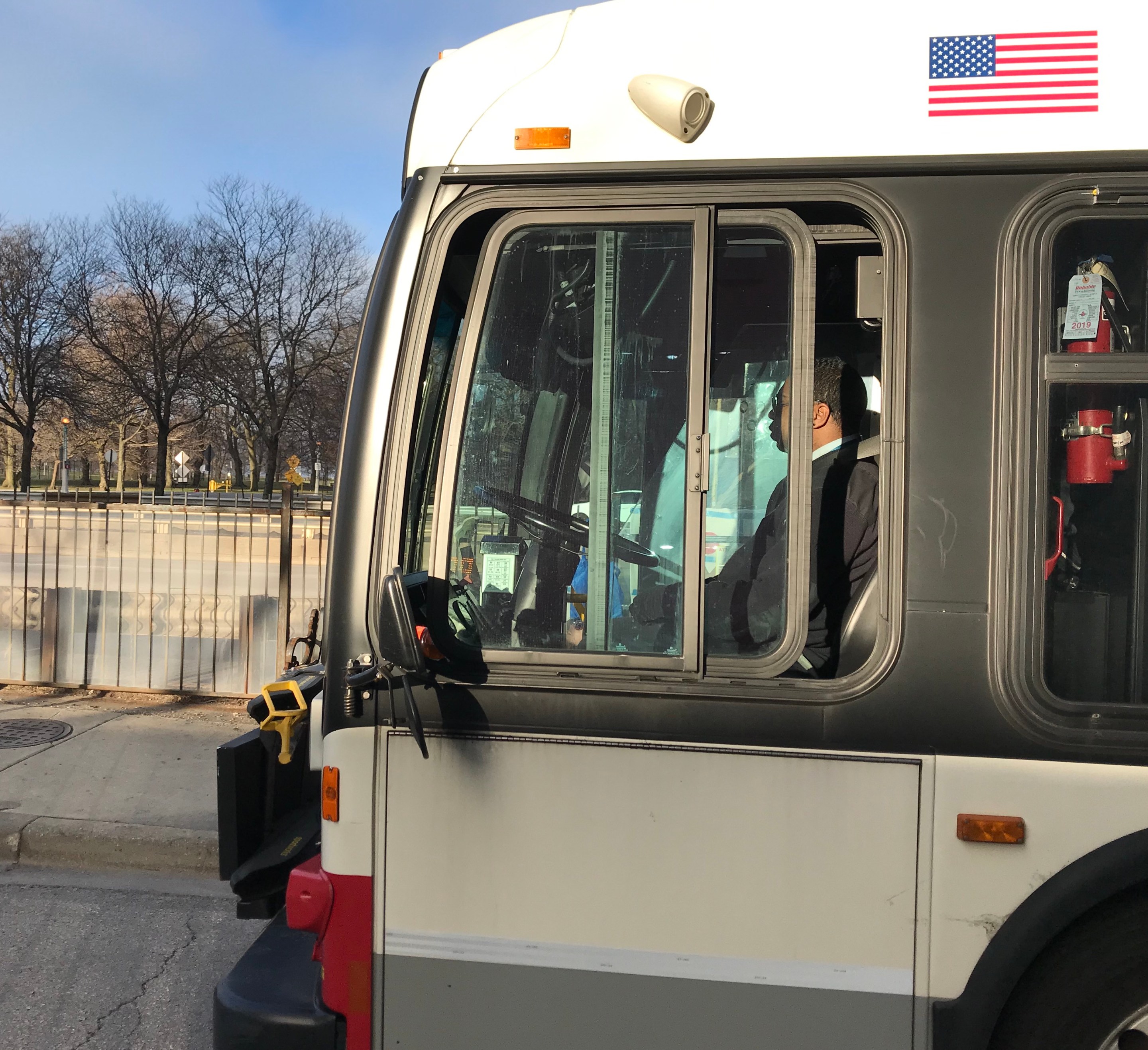Last Thursday when sections of Chicago's lakefront and recreational trails became too crowded for safety during the COVID-19 crisis, Mayor Lori Lightfoot took swift action by closing the shoreline parks, the Lakefront Trail, the riverwalk, and The 606 for the duration of Illinois' Stay at Home order.
Despite plummeting public transportation ridership during the pandemic, dangerous crowding and lack of social distancing is also still a major problem on the CTA. But so far Lightfoot has dragged her feet about taking steps to protect transit riders and employees that have already been in effect for many days in peer cities.
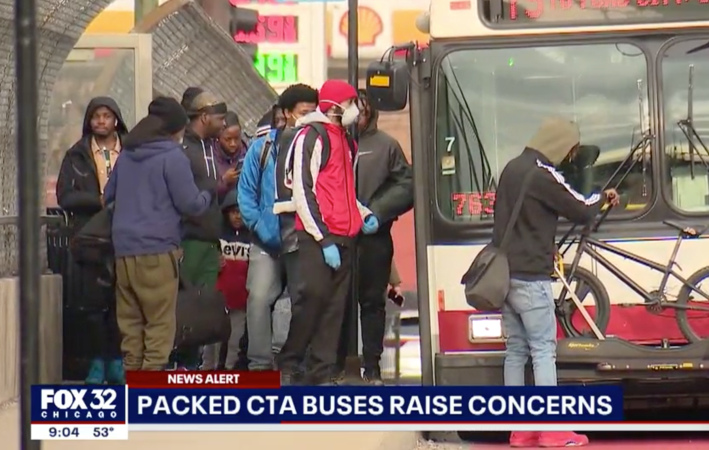
Due to the risk of viral transmission, Chicagoans should avoid transit during the outbreak if possible, but many essential workers and other other transit-dependent people have no choice but to ride. As of last week, CTA ridership was down by 80 percent. But bus drivers are still in danger of coronavirus exposure as passengers file past them one at a time while paying fares. Moreover, there have been reports of unsafe crowding on bus lines such as 79th Street, which makes it easy for the virus to spread between passengers.
There was also a troubling incident on Monday afternoon on a Blue Line train heading to O'Hare when passengers were packed into a single train car. According to the CTA, this was due to a passenger vomiting in the front rail carriage, which forced the operator to evacuate the car. However, a rider gave this conflicting account.
@cta this is how you force us to ride because your operator on line #109 picked us up at Jefferson Park to O'Hare informing us the 1st car she was in was out of service for her safety. Now we were all forced to ride way to close to each other @chicagosmayor pic.twitter.com/qtiEZxKUi0
— $eth Money (@SethMckonly) March 30, 2020
Even more disturbing, as of March 30, 6 CTA bus and train operators had tested positive for the coronavirus, as well as a Pace driver. And yesterday Metra announced that a conductor and three field employees had tested positive.
A CTA spokesperson said the agency "has taken multiple steps to protect the health of both passengers and workers." They citied "a rigorous cleaning regimen, one of the most robust in the industry" for buses, trains, and stations. The spokesperson added that signs encouraging social distancing were recently posted in all buses and railcars:
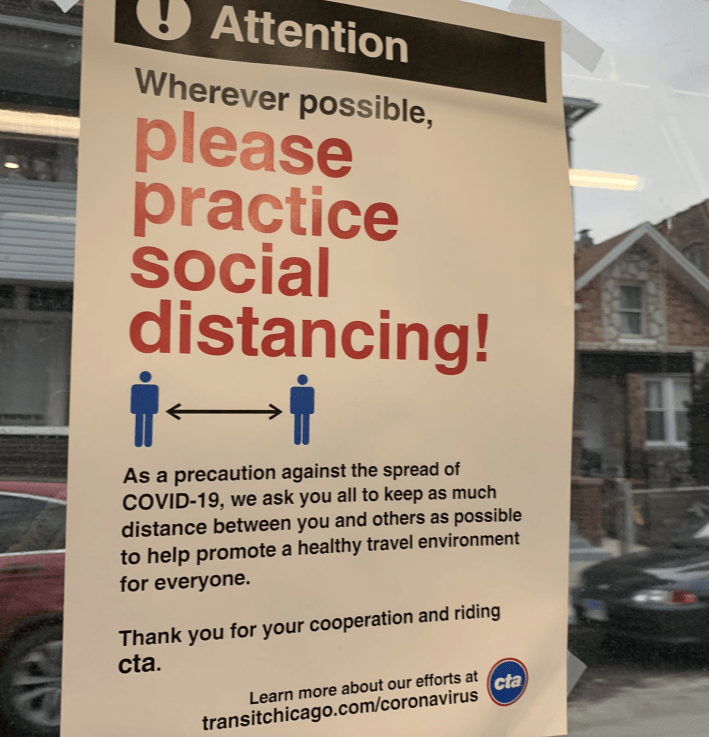
However, Chicago is lagging behind peer cities when it comes to pandemic transit safety. Cities like New York, LA, Boston, Detroit, and Milwaukee are waiving bus fares during the crisis to speed boarding and prevent queuing. They're also requiring customers to use the rear door (with exceptions made for those with mobility challenges) to reduce the driver's exposure.
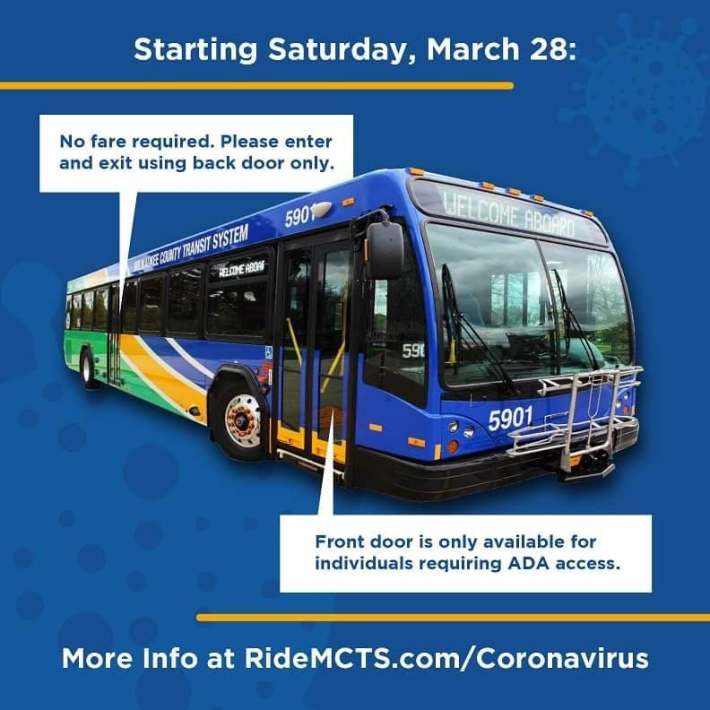
Other strategies include placing signs on train and bus seats asking riders to sit elsewhere to maintain safer spacing, and propping open station doors so that customers don't have to touch the handles.
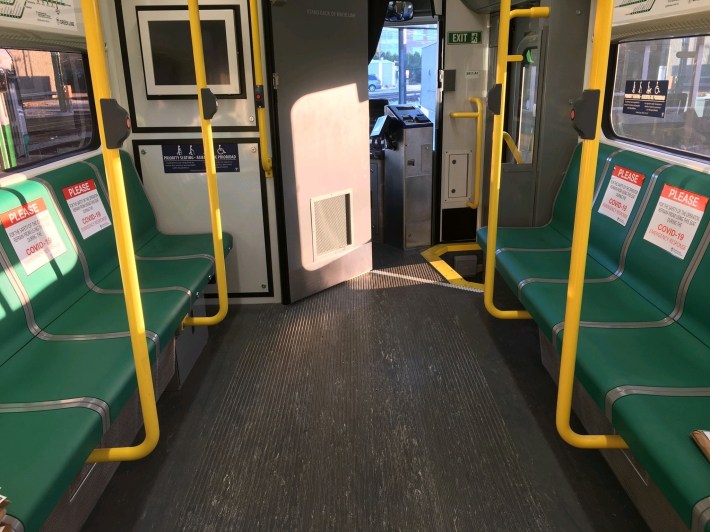
At a press conference last week, in response to Streetsblog's question about why the CTA still hadn't waived bus fares in order to allow read-door boarding, Lightfoot indicated that worries about the transit system's bottom were a factor. "Obviously that has a cost component to it, because then people won’t [be charged] for the ride,” she said.
Keith Hill, president of the Amalgamated Transit Union Local 241, told CBS Chicago that answer is unacceptable. “If they’re more concerned with a dollar amount [than safety] during these times, they’re going to have a major problem with my union and members.”
Similarly, the Active Transportation Alliance is trying to light a fire under Lightfoot and other local decision-makers to protect transit workers and riders. In a recent blog post, advocacy Julia Gerasimenko called for waiving bus fares and rear-door boarding on CTA and Pace buses, as well as the following steps to improve safety and fairly compensate transit employees who are serving as front-line workers during the pandemic.
- Pay bus and train operators time and a half for hazard pay during the crisis.
- Inspect the air filtration system on trains and buses to ensure the virus is not spreading in them.
- Share how frequently CTA buses and trains are being cleaned and what cleaning products are being used.
- Ensure the public receives updates on how many operators are testing positive for COVID-19.
- Provide masks for all operators to wear.
- Maintain levels of service to prevent crowding on trains and buses
Gerasimenko noted that CTA workers making the sacrifice to work during the pandemic "and putting themselves in danger allows... essential workers to get to their jobs and homes safely." As such it's unconscionable for Mayor Lightfoot and other officials to stall any longer about making vital safety improvements such as rear-door boarding, simply because they don't want to sacrifice $2.25 bus fares.
Here are some tips on preventing the spread of COVID-19, and advice for Chicagoans on what to do if you think you may have been exposed to the virus.
